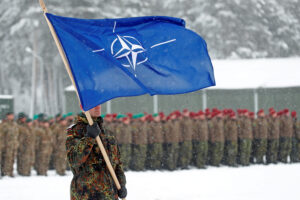The declaration of unconstitutionality of the Section 33 of the Upazila Parishad Act by the High Court (HC) puts this vital tier of local government administration in its right perspective. Such an arrangement is in conflict with the rule by the elected people’s representative as well as the constitution of the land. Originally, it was envisaged that the upazila nirbahi officers would provide secretarial support instead of serving as the chief executive officers (CEOs) of upazilas. It is the people’s representative who would run the administration at this level presiding over 17 departments under various ministries at upazila level. The equation between the two was supposed to be similar to the one between the cabinet and the bureaucracy at its highest level. A mini edition of the parliamentary democracy at this lower but important step of governance!
Unfortunately, it was never even remotely closer to such delegation of power at this local government level. The UNOs have been the supreme bosses and had retained control of all administrative affairs at this tier of local government. This latest ruling by the HC allows the upazila chairmen to have precedence over the UNOs. Let it be noted that a lawmaker of a constituency under which a number of upazilas are placed has his or her order of precedence or superior protocol guaranteed.
Now the unilateral dispensation of administration by the Bangladesh Civil Service (BCS) officials denies the very spirit of parliamentary democracy. But then the equation in which they are placed under elected upazila chairmen to render secretarial support is somewhat tricky and resented by such officials for some good reasons. In fact, the officials of the 26th batch opposed their service as secretaries under upazila chairmen.
Chairmen who get elected are no longer seasoned politicians and some of them with ill-gotten money power and influences other than popularity for them can capture the position of chairmanship. In many cases, as the bureaucratic arguments go, chairmen are not educated enough and hardly conversant with official procedures and proceedings. For BCS officials to serve under such people is rather demeaning.
This may be true to a large extent but it is not the weakness of the system rather it exposes the distortion of democratic values, principles and the very system by a new breed of power-hungry people with little or no initiation with politics and social work. If politically sound, honest and dedicated people find it difficult to get involved with politics and feel discouraged to contest against local mafias, musclemen, corrupt and moneyed people with dubious records, the latter get a field day. When their bona fide as elected people’s representative is in question, how can it be expected of them that they will spend the allocated money fairly on the designated development works? The officials pose questions like this.
This, however, should not distract the fundamental principle of devolution of power and establishment of political leadership per se people’s rule. Ideally, the people’s representatives will have to prevail over the bureaucratic structure at all levels of administration. The administrative functions have to be executed through the bureaucratic set-up at the behest of political leadership. It is so because political leadership gets changed depending on the majority of the people’s choice but the bureaucratic structure remains as it is.
Delegation of absolute power to neither of the upazila parishad nor the upazila office is likely to serve the purpose. A fine balance between the two should be struck in the interest of development and the people’s welfare. As local representatives, chairmen ought to have better knowledge of the local problems. So, they can bring the issues on the table for discussion on how to address those. In this case, the UNOs can even play an advisory role. If they work together in a cooperative and coordinated spirit, there is hardly any reason for tension and conflict. If, however, there is a dispute over any issue, they can seek help from the member of parliament of the constituency concerned for its resolution. The system has to be given a try. With time, it will gradually overcome its weaknesses and flaws. No democratic dispensation is perfect but its essence lies in the continuous striving for perfection.
Source: The Financial Express















